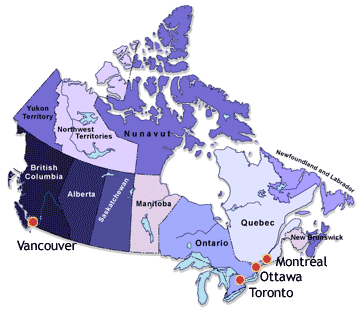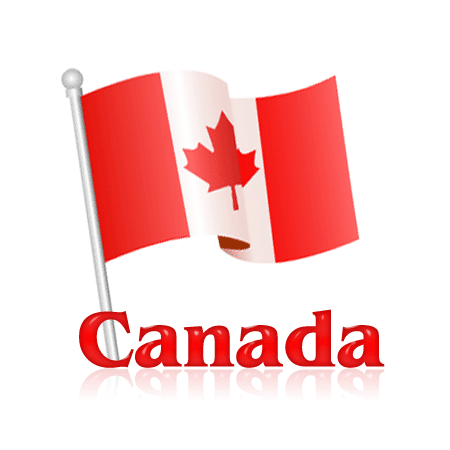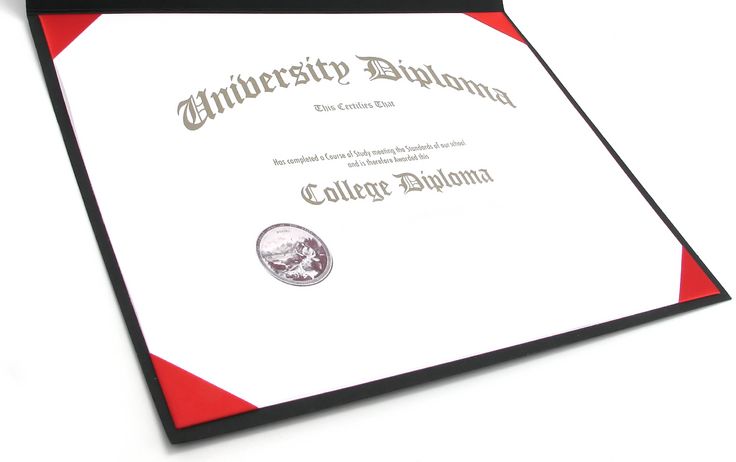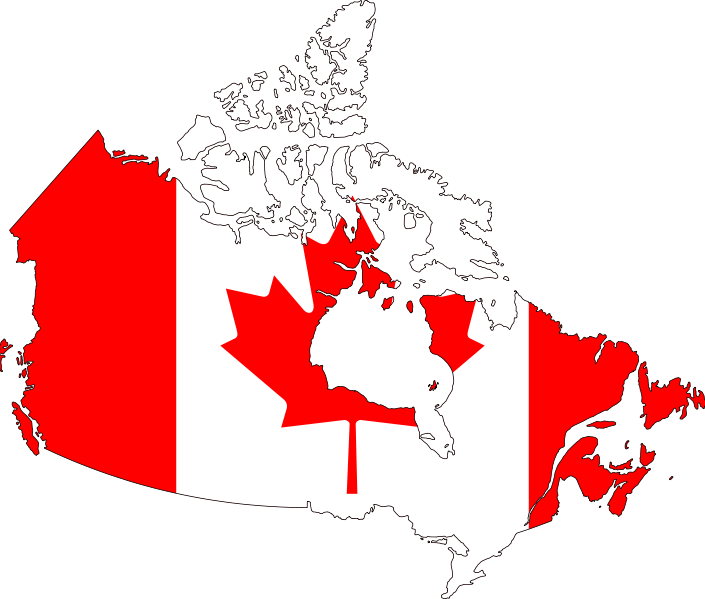CANADA

About Canada

Canada is the second-largest country in world (after Russia). Its strategic location is between Russia and US via north polar route, bordering the North Atlantic Ocean on the east, North Pacific Ocean on the west, and the Arctic Ocean on the north, north of the conterminous US. It has approximately 90% of the population is concentrated within 160 km of the US border. Economically and technologically the nation has developed in parallel with the US and also aims to develop its diverse energy resources while maintaining its commitment to the environment
Education

Canada's universities share a key strength: their high quality. Canadian universities have a long record of providing an accessible university education to students around the world. Canadian universities provide a full spectrum of undergraduate and graduate degree programs, with faculty undertaking research of national and international importance.
Universities in Canada range from large urban, multi-campus and research-intensive universities, offering a wide range of undergraduate, graduate and professional programs, to small liberal arts colleges with a focus on undergraduate education.
In addition to universities, Canada's postsecondary system includes 175 community colleges, which respond to the training needs of business, industry and the public service, as well as the educational needs of vocationally oriented secondary school graduates. These colleges, also known as institutes of technology, university colleges or CEGEPS, historically offered diplomas and certificates rather than degrees. Today, some offer degrees themselves, and a number offer university transfer programs or provide programs jointly with neighboring universities.
Universities that we represent
Canadian universities have earned an international reputation for excellence. Our universities are internationally known for the quality of teaching and research. Degrees from Canadian universities are considered to be equivalent to those from American and other Commonwealth universities. Canadian universities are largely publicly funded; as a result they are of a consistently high quality, regardless of location or area of study. As well, they all retain a high degree of academic autonomy.
The university year usually runs from September to May. Some universities are on a semester or trimester system, with all courses available even in the summer.
Qualifications Offered
Most universities have a large number of part-time or continuing education students. They offer a broad range of courses and a full range of degrees from undergraduate to doctorates, and can also offer certificates and professional degrees.
 Bachelor’s Degree: B.A, B.B.A, B.Com, B.C.S, B.F.A, B.H.Sc and Other Bachelor's & Associate Programs
Bachelor’s Degree: B.A, B.B.A, B.Com, B.C.S, B.F.A, B.H.Sc and Other Bachelor's & Associate Programs
Courses Offered:
Accountancy and Finance, Advertising, Animation, Architecture, Art, Design and Visual Communication, Business & Management, Computer, IT and Software Engineering, Construction, Criminal Justice, Economics, Education Studies, Engineering, English, Environmental Planning, Fashion and Textiles, Finance, Garden design, Geography, Graphic Design, Health and Social Care, Horology, Housing, Human Resource, Illustrations, Information Studies, Jewelry, Journalism, Landscape Architecture, Law, Mathematics, Management, Marketing, Media and Multimedia, Midwifery, Music, Nursing, Physical Education, Photography, Psychology, Poloticals Sciences, Public Relation, Quality Assurance, Radiography, Social Work, Social Sciences, Speech and Language Therapy, Surveying, Teachers training, Tourism and Theatre, Town and Country Planning, Women's Studies.

Master’s Degree: M.B.A, M.Ed, M.Sc, Master's in Social Work. Most universities require good performance at the undergraduate level, in relevant area, in order to consider admission into their Master's level programs. Most Master's programs are of 12 months duration.
Courses Offered:
Art, Design & Performing Arts, Business Managemnet & Economics, Computing & Advanced Technologies Programs, Continuing Studies, Distance Programs, Education, English as a Second Language, Nursing & Health Sciences Programs, Science and Technology Programs, Social Work & Human Service, Tourism, Recreation & Hospitality, Trades & Applied Technology Programs
Admission Requirements

- Completion of an acceptable Secondary School / Undergraduate degree from an accredited/recognized school or university.
- High level of academic achievement in previous studies
- High school graduation with 6 years of previous English language study — TOEFL, IELTS or other test scores are accepted but not required.
- Reference ot Recommendations Letters (Provided by lecturers/professors/ Principal who have taught you at your undergraduate level. Recommendations must reflect you strong both academically and personally.
- The personal essays, and/or statement of purpose, play a very important role in the process of evaluating your application for both admission as well as financial aid because it gives the faculty assessing your application their most significant impression of you as an individual.


